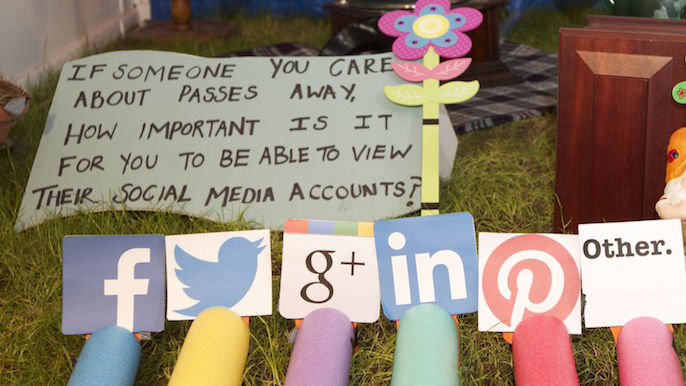What happens to our online lives after we die?

A story on the research of Dr Faheem Hussain of ASU SFIS.
Q: What does a typical 21st century digital legacy look like?
A: When we die, we leave our social media behind: our pictures, memories, messages, whatever you use that for. This is just not about Facebook. This is about any services that are using our data. There’s Google, there is LinkedIn, there is Twitter. Our Google accounts are huge in terms of our likes and dislikes, what we do, what we say, what we search. When you go beyond the first world, there’s a huge issue with online banking in different parts of the world where there are emerging economies. There’s a lot of personal data there, and people are willingly giving it out without realizing what happens to that data down the road.
Q: Why should people take this seriously?
A: Hardly anybody is talking about what happens to these data after we die. It affects everybody, but there have been no guidelines. Whatever companies or individuals are doing, they’re doing in their own ways. If we don’t have standards, there is no legal safety net and it’s a wild west.
(A story told during the session provides an example: University student and social activist Nahian Al Muktadir had cancer. During his treatment, with fundraising efforts going on, Nahian actively shared his daily experience on Facebook. After he died, his family and friends wanted to publish all of his Facebook statuses in a book but were unable to, as Facebook memorialized his account and all of his statuses became inaccessible to others. Nahian’s family tried to convince Facebook to allow them with access without any success. So, in essence, the family had to fight over Nahian’s digital legacy.)
Q: Do deceased people still have a right to privacy?
A: I personally believe so. I am skeptical when it comes to legal enforcement. I am a big proponent of letting the market decide on the standards rather than the law. But I think the conversation needs to be there.
Q: Google has an opt-in setting that allows you to have your data deleted once you pass away. What do you suggest people do to set their digital accounts in order before they die?
A: First of all, be aware of social media policies, always. When you think about the privacy setting your social media providers give you, you have to know the end of the day they will have your data anyway. We need to be responsible when it comes to use of digital platforms when it comes to sharing data. I only share the things that I’m comfortable sharing. Because of that, I don’t care about whether people have access to it after I die.
Q: How should we interact with the dead on social media?
A: We need to talk about culture, in terms of how we’re dealing with death online, and what kind of service companies are providing, and how whether or not it helps. In Japan and Korea, they have these digital tombstones. If you go to some cemeteries in Japan, there are QR codes there where you can listen to the deceased person’s favorite song and see their favorite movies or quotations and whatnot. That’s something very interesting to look into. It can be therapeutic, right? But at the same time, it can be exploitive, it can possibly make things worse (some forms of digital mourning, such as having a family member keep the account active, could cause trauma to others and prevent them from being able to move on from the death, Hussain said earlier in the conversation.) We absolutely have no idea how things can be impacted.
Source: https://www.sciencemag.org/news/2020/02/what-happens-our-online-lives-after-we-die

